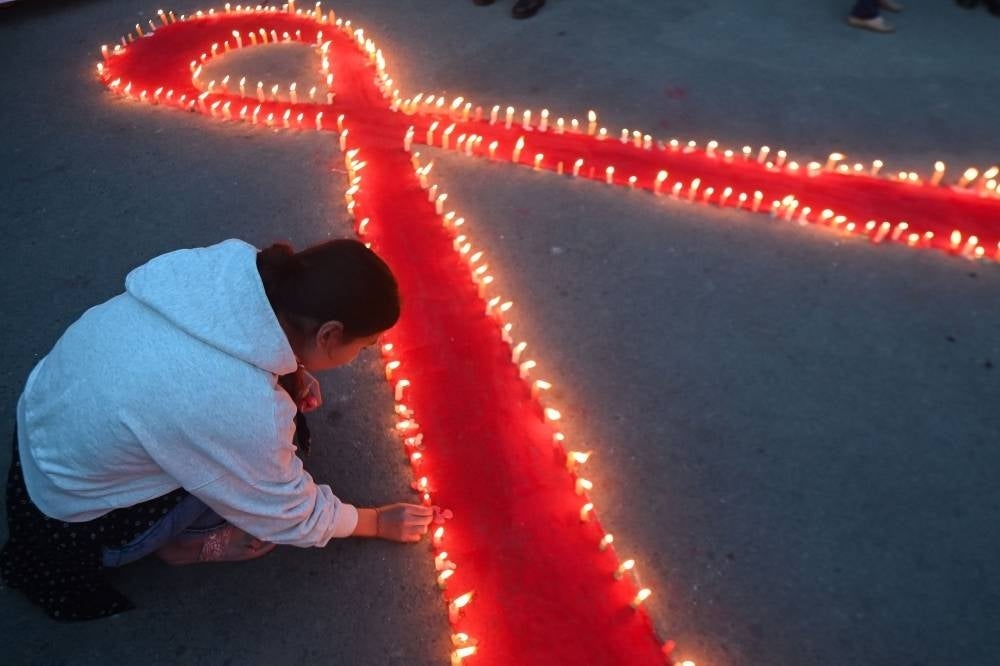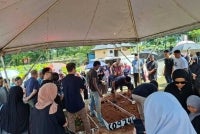World AIDS Day: ‘Let Communities Lead’

KUALA LUMPUR - As we commemorate the World AIDS Day, it is a time for us to remember friends and loved ones that we have lost to the disease and reflect on the immense progress made in the fight of HIV and on the work that still needs to be done to achieve an HIV free generation.
Over the last decade, we have seen an epidemic shift in HIV transmission from one predominantly driven by injecting drug use to that of sexual transmission.
In 2022, 96 per cent of new HIV transmissions occurred through sex.
HIV in Malaysia is concentrated in key populations such as Men who have sex with men (MSM), trans people, people who use drugs (PWUDs), sex workers and their clients.
Key populations are defined groups who due to specific risk behaviours are at increased risk of HIV.
They often have legal and social issues related to their behaviours that increase their vulnerability to HIV.
The theme of this year’s World AIDS Day - “Let Communities Lead” is a call to action to governments and ministries of health to fully support and empower the communities important and live saving work in the HIV response and to remove barriers that stand in their way.
This approach recognises the importance of HIV community-based organisations, organisations of communities living with, at risk or affected by HIV as having unique insights into the challenges and needs of people they aim to serve.
By giving them the platform and resources to lead, we can ensure that the HIV response is tailored to the specific demands and realities of different key and vulnerable populations.
Historically, top-down approaches to public health issues including HIV have dominated the global response.
Community-led responses are rooted in an understanding of the sociocultural, economic and political factors that shape the experiences of those affected by HIV.
Community-led initiatives have been proven to be effective in addressing key issues such as stigma and discrimination towards persons living with and at risk of HV unfortunately still very much prevalent amongst our healthcare providers which can impede access to HIV prevention and treatment.
Physicians in Malaysia who expressed greater discriminatory intent against people living with HIV (PLWH) also expressed more negative feelings toward PLHIV, more HIV-related shame, were more fearful of HIV, and believed that PLHIV do not deserve good care.
From an HIV testing perspective, it has been shown that the most marginalised persons at risk of HIV are more likely to come forward to get tested for HIV if the testing centre is staffed by the communities that look and speak like them.
Malaysia has been successful in decentralising non-complicated HIV care and treatment and provision of first-line antiretroviral treatment from hospitals to key population friendly community based primary care providers as part of a differentiated HIV service delivery model.
The Malaysian Ministry of Health has adopted the National “Differentiated HIV Service Delivery for Key populations” or DHSKP programme which involves community healthcare workers and peer support networks working side by side with primary care providers in the clinic to foster trust of the community, its key strength to facilitate access and increase HIV testing, and provide a supportive environment for those who test positive to initiate HIV treatment and encourage retention in care.
There are also successful models of community-based and community-led HIV testing which needs to be scaled up. We also need to entrust communities with providing services beyond HIV testing and counselling. In order for this to happen, we need to ensure that there is adequate reimbursement of services implemented by the community, support at a higher Ministry of Health (MOH) level and adequate training, certification and accreditation of community health care workers.
There needs to be a shift in mindset to view our community healthcare workers as valuable and equal partners in the HIV response capable of providing high-quality services from HIV testing to HIV prevention, treatment and care.
These community-led models of HIV prevention in particular have been very successful in Thailand and Vietnam in reaching communities at risk of HIV for HIV pre-exposure prophylaxis (PrEP) far more successful than traditional health care facilities and have received much praise both regionally and internationally.
It is important to note 80 per cent of the 53,000 PrEP users in Thailand obtain PrEP from key population led services showing the region what can be achieved if community health care workers are given the the support, training and resources to lead services.
Other benefits of de-medicalising care to trained community health care workers include conserving limited physician time to more complex cases, builds partnerships between different providers and services and supports client centred care.
It cannot be overemphasised that in order to truly harness the potential of community leadership, there is the need of sustained investment in capacity building, technical assistance and meaningful partnerships with governments and other stakeholders.
By empowering communities, we also foster a sense of accountability and ownership which are essential for the sustainable progress in the fight against HIV.
We need to ensure key populations have a stronger voice and remove barriers that prevent communities from fully engaging in the HIV response.
When communities are engaged in decision making processes and program implementation, they are more likely to prioritize solutions that are relevant and meaningful to them.
This bottom-up approach not only generates innovative ideas but also strengthens the overall resilience of the response.
The uniqueness of ensuring that persons affected or at risk of a disease have an equal voice in shaping services of treatment and care should be the benchmark of how medicine should be practiced in general and how other medical specialities should follow by example in being more inclusive of key affected populations in directing service provision.
In addition to contributions to service delivery, communities have also a critical role in advocacy and policy influence.
Through collective action, they can amplify the voices of those most affected by HIV and hold governments accountable for their commitments.
When communities lead advocacy efforts, their first-hand experiences bring authenticity to the forefront of the HIV response and challenge misconceptions.
They are uniquely positioned to articulate the challenges they face, whether related to stigma, access barriers or social determinants of health.
Through community-led advocacy, individuals challenge the structural inequalities and injustices that perpetuate the HIV epidemic. Criminalisation of key populations reverses the progress on the epidemic that took us decades to achieve.
It perpetuates prejudice, stigmatization and discrimination, not to mention the fear that communities such as men who have sex with men (MSM) and transgender (TG) people face when seeking HIV health services.
Our approach to the HIV and AIDS crisis should prioritise public health outcomes rather than causing the persecution and further marginalization of communities already on the fringes of society.
Taking a moralistic stance against MSM and TG communities in response to the epidemic will only isolate them, hindering lifesaving HIV prevention and treatment efforts.
Within the Malaysian context, there continues to be unfair workplace policies which continue to discriminate against PLHIV despite overwhelming evidence that PLHIV on HIV treatment who maintain an undetectable viral load (undetectable means that the test cannot detect the virus in the blood) pose no risk of HIV transmission to their sexual partners, let alone their work colleagues. This is widely known as U=U or undetectable = untransmittable and the evidence for U=U is embedded in strong scientific evidence including 1 randomised controlled trial and 3 observational studies showing zero linked transmissions among 125,000 condomless sexual acts between HIV sero-different couples when the HIV positive partner had an undetectable viral load.
It is imperative that HIV stakeholders including communities amplify the positive messaging of U=U to the general public and re-frame HIV with a focus on health and longevity resulting from viral suppression.
The Malaysian AIDS Council and the Malaysian AIDS foundation will continue these advocacy efforts to hopefully effect policy change in the workplace.
The theme “Let Communities lead” also remind us of the importance of recognising and supporting diversity within communities. Different populations such as key populations, women and young people have distinct needs and experiences related to HIV.
The Covid-19 pandemic has highlighted the importance of community-led responses in addressing public health crises.
On World AIDS Day, let us reaffirm our commitment to supporting and enabling communities to lead the HIV response. This means not only recognizing the invaluable role that they play but backing our recognition with tangible support and investment.
It requires a shift in mindset, power dynamics and resource allocation to place communities at the centre of the HIV response.
Only by doing so can we build a more inclusive, effective and sustainable approach to ending the HIV epidemic.
Associate Professor Raja Iskandar Shah Raja Azwa, President of Malaysian AIDS Council & Trustee of the Malaysian AIDS Council
The views expressed in this article are the author's own and do not necessarily reflect those of Sinar Daily.
Download Sinar Daily application.Click Here!














